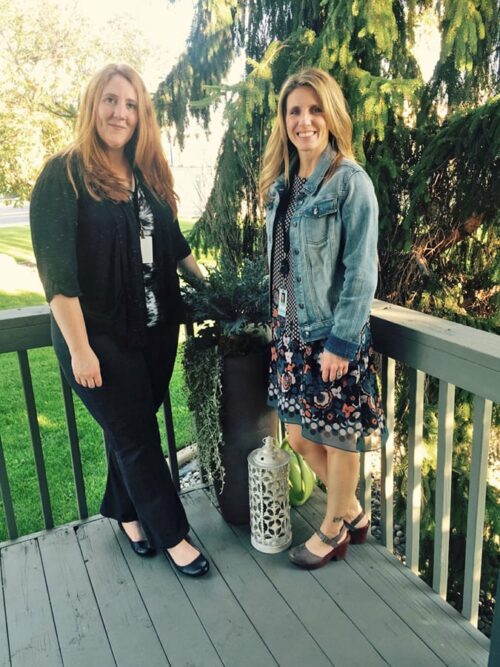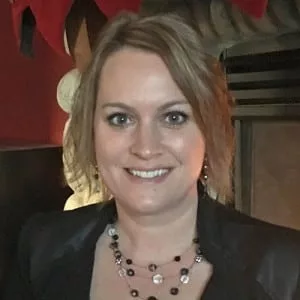
Home » Wellness Center expands support, treatment of eating disorders and mental health
Wellness Center expands support, treatment of eating disorders and mental health

January 10, 2016
Having overcome the challenge of an eating disorder, Katie Klute sought to pass support and resources to others experiencing the same issue in their lives. Six years ago, Klute opened a nonprofit referral organization, which served as the catalyst for the woman to create The Recovery and Wellness Center of Eastern Washington in Kennewick. It opened Oct. 1 and offers myriad mental health services.
[blockquote quote="There are area providers that see clients individually, but we are the first and only facility to offer an intensive outpatient program." source="Katie Klute, CEO & owner of The Recovery and Wellness Center of Eastern Washington" align="right" max_width="300px"]
“I had an eating disorder many years ago. It started in eigth grade and carried into the third year of my marriage. I have been in recovery for almost 20 years,” said Katie Klute, CEO and owner of the center and a certified addiction recovery and wellness coach. “While I would never wish an eating disorder on anyone, I know now that mine had a purpose. I knew long ago that I wanted to help others. I could continue to be a victim of my eating disorder or do something good with what I learned from my experience.”
In 2009, after starting a nonprofit to offer resources and referrals to individuals with eating disorders, Klute discovered there were limited resources for treating eating disorders in the Tri-Cities.
“I had done a tremendous amount of research on the various levels of treatment and so I started down a road of reaching out to the larger facilities, inviting them to our area, taking them around the Tri-Cities in an effort to ‘sell them’ as a great place to expand their business and services,” Klute said.
But none of those that she reached out to were ready to offer services in the Tri-Cities.
“It was disheartening,” Klute said. “I knew we had a tremendous need but was having difficulty getting support services here.”
After much contemplation and with her husband’s support, she decided to open a center.
Klute had met Erin Sharma, ME, LMHC, years before, and lured her onboard as the clinical director.
“We occasionally crossed paths,” Klute said. “She is one of those individuals you don’t forget. When I was putting together my business plan, Erin was the first person that popped into my head.”
The two met and their visions “aligned perfectly.” The women now work in tandem to meet the Center’s mission: the discovery and empowerment of clients to live the most fulfilled lives possible.
“There are area providers that see clients individually, but we are the first and only facility to offer an intensive outpatient program,” Klute said.
Clients with anorexia, bulimia, binge eating disorder/food addiction are served through the Center, as well as those with depression, anxiety and trauma without the eating disorders.
“We’ve really chosen to expand our services to help those with mental illness not eating disorder-specific,” Klute said.
Sharma sees clients individually, and self-sufficiency groups are offered as well. The therapeutic groups are Monday and Wednesday for adolescent and adult females and Tuesday and Thursday for adolescent and adult males.
The Center will hold a mental health facility license by the end of December, which will allow it to offer an intensive outpatient program. That program will be offered three days per week, three hours per day and provide an hour of individual therapy. Clients will get 10 hours of treatment per week for 12 weeks.
Klute’s list of goals is long.
“We are seeing several clients who do not have an eating disorder, but struggle with depression, anxiety and/or trauma,” she said. “We are looking at adding a separate intensive outpatient track for those individuals. We are also looking at getting into local schools.”
One school has agreed to launch a pilot program to determine whether offering services within the school changes the outcome of a student’s performance. She plans to offer school-based mental health clinics and group and individual therapy on school property.
Another goal will likely come to fruition ahead of schedule.
“I was projecting to expand into partial hospitalization (day programming) within the year, but our demand has been higher than we anticipated so I’m beginning to think that will happen closer to mid-year next year,” Klute said.
Additional staff will be hired in January to support the two intensive outpatient programs.
“We have an incredible community with members who need support,” Klute said. “Erin and I want to be part of the solution. This has always been really important to us.”
Klute said that depression is often seen as more prevalent during the holiday season, perhaps due to a change in weather and additional stress, but it’s a year-round disorder for those suffering from it.
“It’s also a time when families come together and while many of us find that fun and exciting, it can be extremely anxiety-provoking for some,” she said.
In addition to the emotional stressors that pop up during the holidays, Seasonal Affective Disorder can be caused by a drop in serotonin.
Klute encourages people to recognize when they experience a mood shift that’s out of character.
“When you don’t feel physically good, you go to a doctor. The same should be for not feeling well mentally,” she said. “Reach out to a therapist. There is no harm in practicing self-care when it comes to your mental health.”
Self-care activities might include deep breathing, a creative outlet, having your nails done, getting together with friends, laughing, taking a walk, and finding someone to rely upon and talk to, Klute said.
“Journaling helps provide an outlet for negative emotions we might be carrying around,” she added. “Don’t be afraid to reach out. And remember this is a season of joy. We put so much pressure on ourselves.”
Though they provide treatment for many mental illnesses, the original focus of the Center continues.
“Eating disorders often go undiagnosed, are misdiagnosed or people do not disclose they have an eating disorder,” she said. “We knew there was a high need in our community, but are truly amazed at the number of clients we have seen in the month and a half we’ve been open.”
Klute said she receives numerous calls weekly from individuals, other providers and treatment centers. The Center doesn’t turn anyone away due to financial reasons and accepts insurance, self-pay and Medicaid, while financial contracts are offered to qualifying clients.
“I am working to get the nonprofit reinstated so we can run programming through that, as well as raise funds to provide scholarships to those who need treatment but cannot pay,” Klute said.
Another long-term goal is to offer more support for families and caregivers.
“Much of the time, family dynamic plays a role in the recovery – eating disorders in particular are difficult to recover from,” Klute said.
Often individuals will go to treatment, return home and their family thinks that person is healed. In reality, the work is just beginning. Helping families understand their role and how offer support will help the individual reach and maintain recovery, Klute said.
Klute believes there are more stressors and pressure on people than ever before, but also a wider range of tools to diagnose, track, survey and study, which ultimately leads to more support and treatment.
“It’s not about business building for me,” Klute said. “It’s about fulfilling a purpose and helping people get support, treatment, to find their voice, feel empowered, and be well so they can make a difference in the life of someone else. We believe in collaborative care. If we can’t help an individual here, we will help them access resources and provide referrals to other providers or treatment centers.”
For more information about The Recovery & Wellness Center of Eastern Washington, go to recoveryandwellness.org or call 509-619-0519.
Business Profiles
KEYWORDS december 2015





